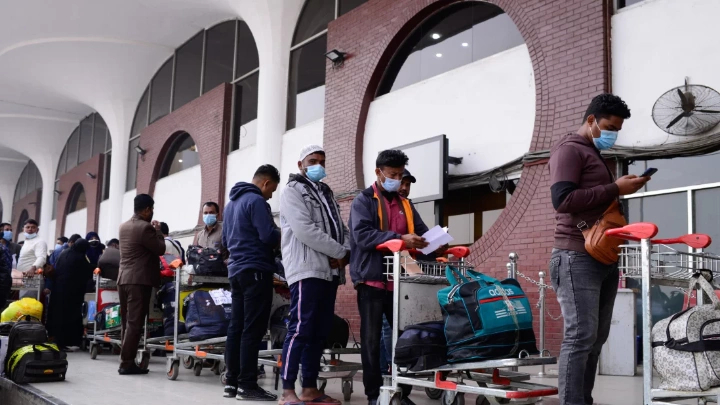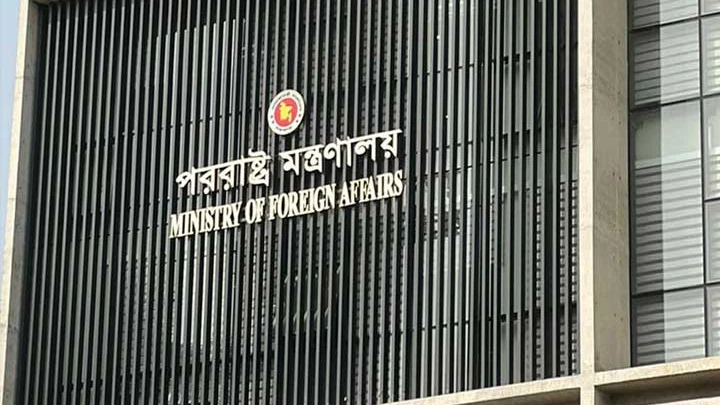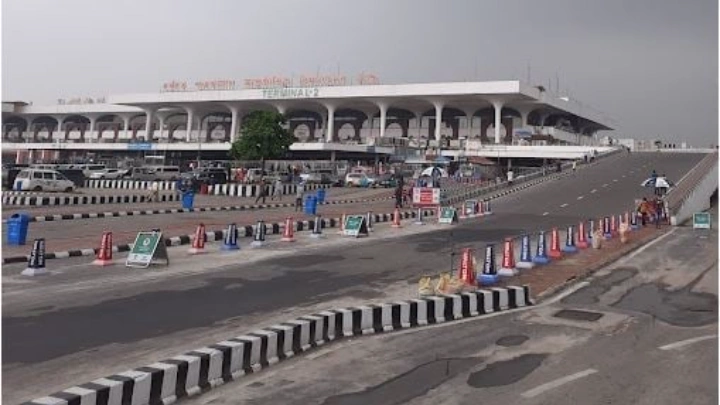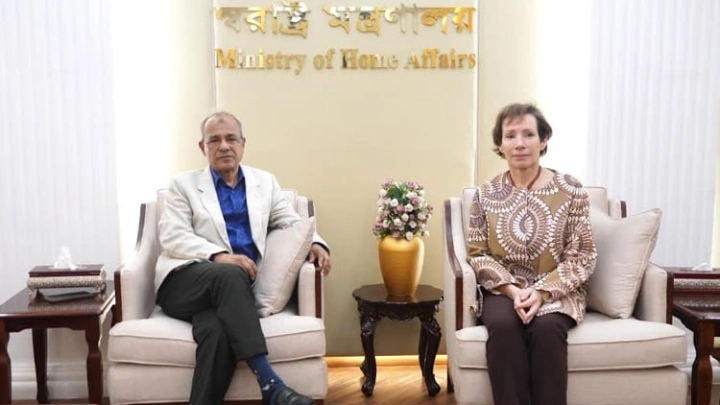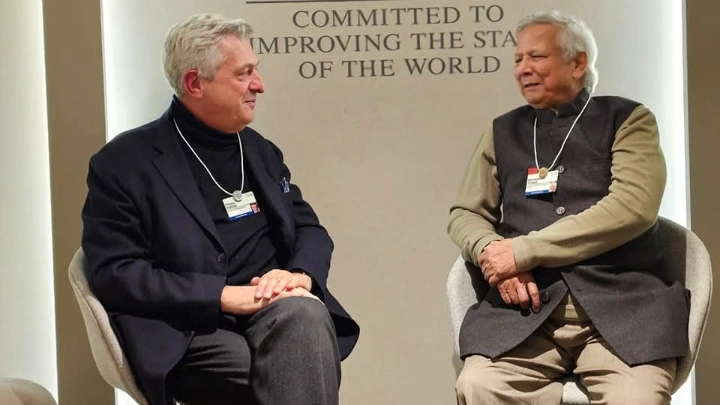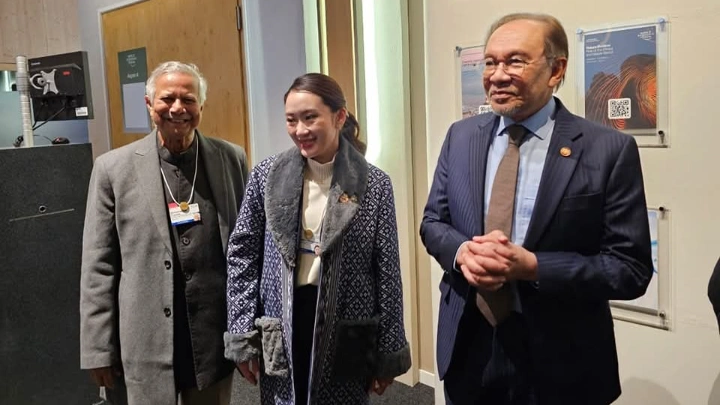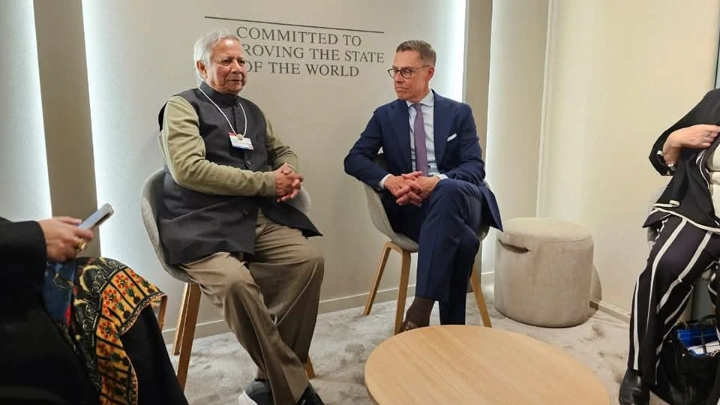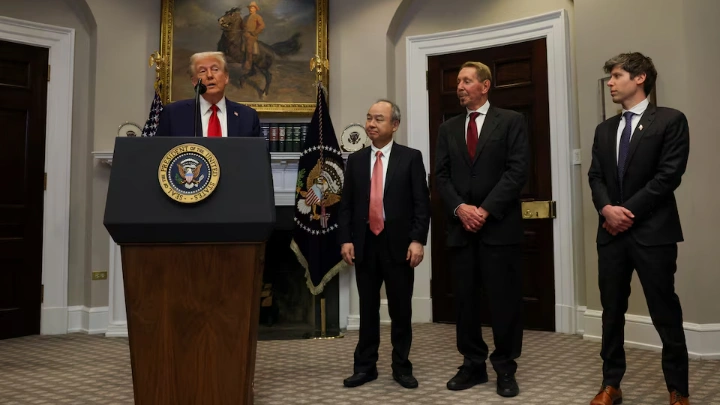Bangladeshis find new jobs in Libya as embassy tackles trafficking
DhakaTribune || Shining BD
The establishment of a labour market in Libya for Bangladeshi workers is creating new job opportunities, but concerns about human trafficking persist.
Libya, a major route for illegal entry into Europe, has been a significant destination for human trafficking, with many Bangladeshi youths falling victim to the menace.
The Bangladesh embassy in Libya is actively working to expand the labour market while addressing human trafficking issues.
The Bangladesh ambassador to Libya, Major General Abul Hasnat Mohammad Khairul Bashar, highlighted the embassy’s efforts in engaging with various authorities and companies to enhance job opportunities for Bangladeshis.
A memorandum of understanding was signed last year between the two countries to facilitate the employment of Bangladeshi workers in Libya.
Over the past year, approximately 2,500 Bangladeshis, including doctors, nurses, chartered accountants, and labourers, have secured jobs in Libya.
The ambassador anticipates further growth in these opportunities as the situation in Libya stabilizes.
Challenges in labour market
Currently, more than 20,000 Bangladeshis are employed in Libya.
However, Ambassador Bashar noted several challenges, including the tendency of Bangladeshi workers to flee their jobs in pursuit of reaching Italy illegally.
He said: “There are some obstacles here. I often visit various companies that have job opportunities here. A common complaint of people here is that they are in trouble with Bangladeshis. A large number of Bangladeshis working in various companies fled after working for a few days. Basically, they fled from there to go to Italy. And by doing this, they put the companies into trouble because these companies have to spend money as part of the recruitment process of taking people from Bangladesh.”
“Wherever I go, I try to warn Bangladeshis about this. But a part of them has dreams that maybe their fate will change if they go to Italy. It is very difficult to divert them from that goal,” he added.
Recruitment of medical professionals
An agreement with Libya aims to send 1,600 Bangladeshi doctors and nurses to the country. In June last year, 600 doctors and nurses were selected by Libya’s Ministry of Health, with 200 sent in the first phase.
Their salaries range from $1,400 to $1,600 for doctors and $600 to $700 for nurses.
However, due to the high salary compared to other doctors in Libya, there have been delays in payments. The Libyan cabinet has now approved these salaries, and regular payments are expected to commence soon, which will facilitate the hiring of additional medical professionals.
Ambassador Bashar said: “As their salary is almost three times that of other doctors working in Libya, its health ministry could not pay them when the finance ministry raised an objection.”
“I communicate with them from time to time. They have finally told me that the said salaries have been approved by the cabinet and the doctors will be paid regular salaries along with their full dues from next month. I hope that the remaining doctors and nurses supposed to be hired will have their salaries paid regularly,” he added.
Combating human trafficking
Since taking office in June 2023, Ambassador Bashar has prioritized addressing human trafficking.
Approximately 2,000 Bangladeshis have been repatriated since last year, with plans to bring back another 162 from Benghazi.
He said, “After taking office, I saw that after a few days, there are some accidents among those who attempt to go to Italy illegally. There are two governments, in the eastern and western regions of Libya. No visa or any other document is required to enter the eastern region. For this reason, those who want to attempt to go to Italy illegally, in most cases choose this region.”
“I first try to find out how many Bangladeshis are imprisoned in various government detention centers and other places. I have negotiated with the authorities and taken the initiative to send them back with the help of the IOM.”
Victims of trafficking
Illegal migrants often travel from Dubai to Benghazi, Libya, before attempting to cross the Mediterranean Sea to Italy.
Many face severe hardships, including being caught by law enforcement or armed groups, and subjected to torture by mafia syndicates.
These gangs extort money from the victims’ families, often exceeding the initial cost of the illegal journey, which can be around Tk10 lakhs.
The ambassador said: “There are some Bangladeshi mafias who sell the captured people to other mafia syndicates. This syndicate tortures Bangladeshis and extorts money. If someone is lucky, he can cross the ocean to reach Italy. Many victims of torture are sold to other mafia groups and their prison lives continue. Many have died from torture. If it is possible to rescue someone, he is sent back to the country.”
“They are subjected to various forms of torture, from their hands being tied, their hands or toes cut, their nails removed. It usually costs around Tk10 lakhs for an illegal immigrant to reach Italy. But in most cases by torturing them, the mafia gangs collect more than Tk10 to 15 lakhs.”
“I have spoken to many of them,” said the ambassador. “But no one wants to reveal the trafficker’s identity through whom they reached Libya.”
Call to caution
“I am always giving warning messages in the media and social media so that Bangladeshis do not come to Libya illegally with the intention of going to Italy through traffickers,” said the ambassador.
“I am also in contact with the law and order forces in Libya so that this illegal cycle is eliminated. I have already had discussions with their foreign minister and senior officials of the home ministry. They say it cannot be stopped by Libya alone.”
“Human trafficking starts from Bangladesh. But they (trafficked persons) come to Libya via UAE or Egypt or other countries. This also includes those who are arranging chartered flights or anything else. If all stakeholders do not work together, it will not be possible for Libya or Bangladesh to stop it,” he added.
Ambassador Bashar said: “Italy has taken a good initiative. They no longer want to accept illegal immigrants. In the first six months of last year, about 7,000 Bangladeshis crossed into Italy. But in the first six months of this year, it has come down to 4,500.”
“Although we do not have diplomatic contact with the government of the eastern region of Libya, we have been sending them messages at various times to stop such illegal immigration. Italy is also telling them that no ship with illegal immigrants should be released from their shores,” he said.
Shining BD

